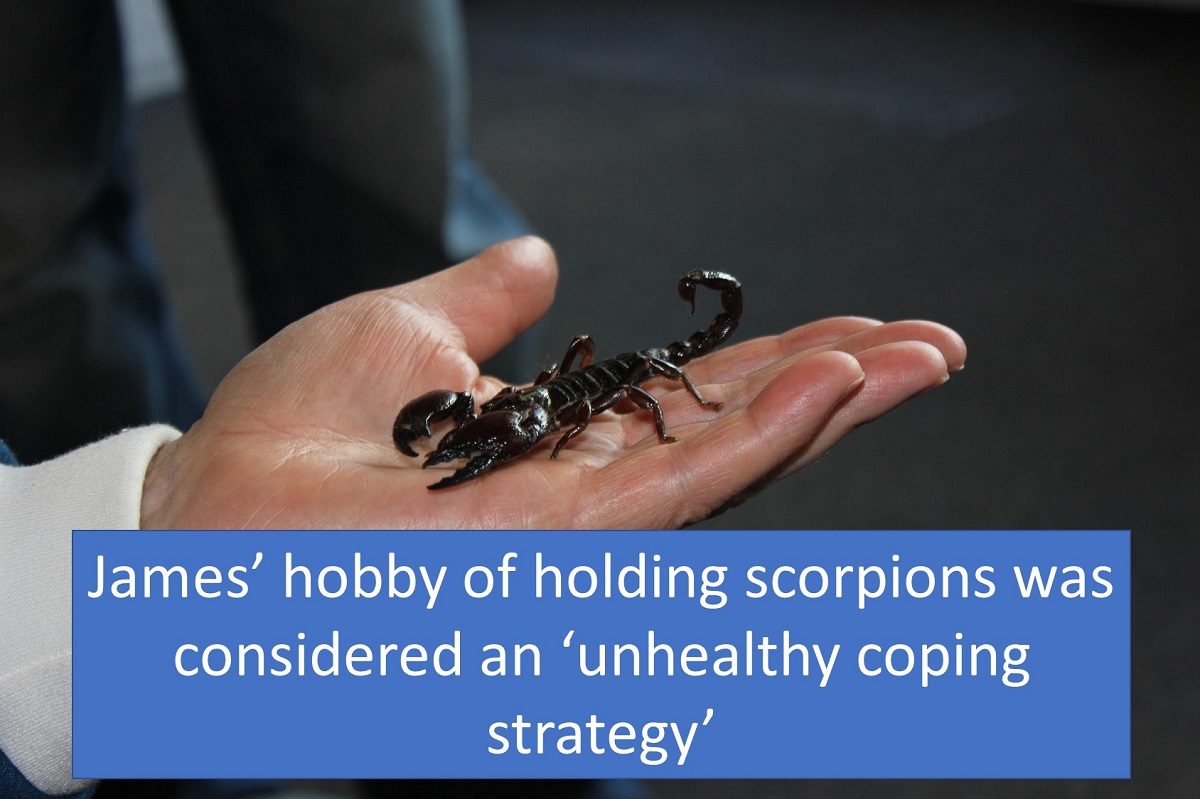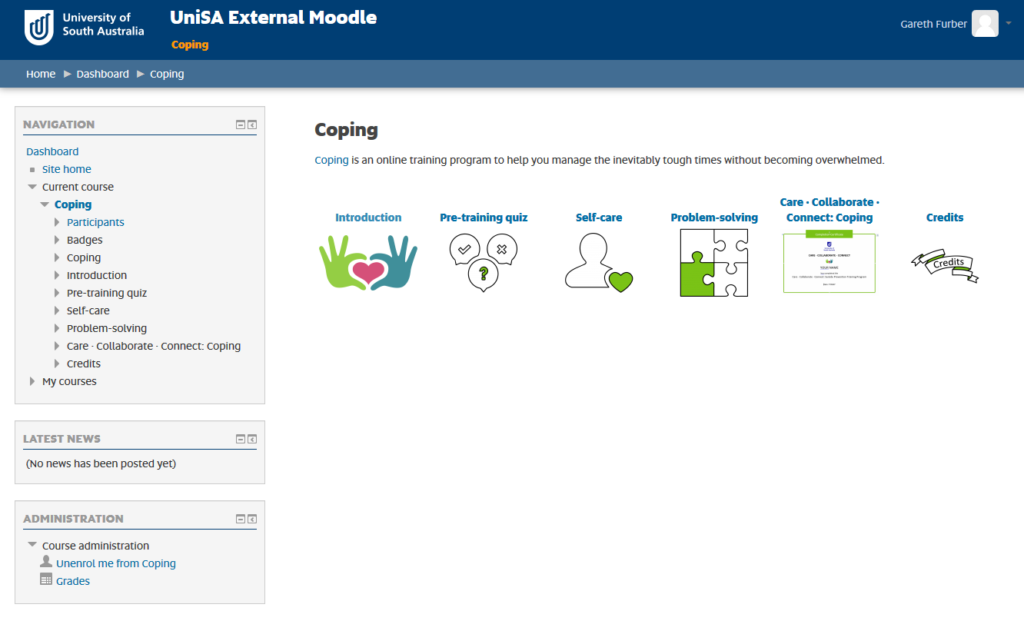
The terms ‘coping’ and ‘resilience’ are thrown around a lot nowadays in relation to university students.
The reasons are relatively simple.
Studying at university can be stressful, for a variety of reasons; the challenge of the work itself, fitting study around work and family, and travelling overseas to study.
We know it is stressful because students frequently report poor mental health and psychological distress in relation to these issues.
The upside of this however, is that universities are increasingly developing evidence-based ‘coping’ and ‘resilience’ interventions that students can use to develop skills that will benefit them across their lifetime.
Here in South Australia, The University of South Australia (UniSA) now offers a free external course called “Coping“.
It is an online training program designed to “help people develop skills to cope with the inevitable ups and downs of life”
Despite intense feelings of inter-university competitiveness, I worked through the course this morning. The purpose of this blog post is to give you an overview of the course, in order to help you decide whether it might be appropriate for you.
What do we mean by coping?
Stress in life is inevitable. Coping refers to the strategies we use to deal with this stress.
Some strategies make things better – we call them positive or healthy coping strategies – they include things like meditating, spending time in nature, caring for your body and building strong relationships. These are the kinds of kinds of coping strategies that move you unwittingly towards becoming a hippie.
Other strategies make things better in the short-term, but have negative long-term effects – like excessive drinking. We call these negative or unhealthy coping strategies. They are usually the ones that are more fun, but that we know deep-down aren’t going to make anything better. For example, self-medicating with hot chips has just ended up making my clothes tighter.
Why bother studying coping?
We all have ways our own ways of coping. Typically we’ve learned those strategies from parents, friends, colleagues, books, videos, etc.
If you are lucky, you’ve learned healthy coping strategies and find that for the most part, you are able to deal with stressful life events.
Often however, our coping strategies are not very healthy, or we find they aren’t helping us deal with bigger stressors, like the stress of studying at university.
If you find that you are easily stressed out, then studying coping may equip you with some more precise coping strategies. Just like getting a personal trainer helps you hone your fitness routine, studying coping helps you hone your mental health routine.
What does the “Coping” program involve?
The “Coping” Course consists of two Modules. The first introduces you to the different ways that you can look after yourself, which we call ‘self-care’.
‘Self-care’ sounds wanky and stupid, but it is really a core element of health and wellbeing. Put simply, if you don’t invest time and effort into looking after your own health and mental health, then your coping resources become depleted and stressful events can leave you wrecked. This can be a tough sell to young people, cause their bodies are still able to withstand misuse, unlike old farts like me.
The good thing is you have choices when it comes to self-care. There are a number of areas in your life that you can work on. The ones covered in the course include sleep, nutrition, social relationships, healthy activity and coping self-talk.
The second Module provides a stepped-out systematic approach to problem-solving. This includes a worksheet that describes the steps you can use when solving a problem, and a video showing a counsellor working through the worksheet with a student.
Where relevant, the course includes links to health professionals or other resources are provided.
What I like about the course
Its quick. I worked through it in about 30 minutes. The site says 1 hour.
The advice is focused and brief. You are unlikely to get overwhelmed with content. However there are clear suggestions and strategies that you can take away and start using immediately.
There are some elegant ideas in this course that I had not encountered before:
I liked the breakdown of ‘activity’ into three categories: mastery (i.e. getting good at stuff), pleasurable (i.e. having fun) and physical (i.e. getting fit). The suggestion we aim to get one of each into every day is simple but elegant.
I liked the emphasis when using coping self-talk to use the non-first person. For example, in encouraging myself to try again following a failure, i’d use “Gareth, I know you are disappointed in how that worked out, but I reckon if you have another go, it will go better”. Its like giving yourself a pep-talk.
The use of some simple non-threatening quizzes helps you determine whether the content has sunk in.
You get a certificate at the end of the program. I love certificates.
What I don’t like about the course
More likely a function of the underlying software (Moodle), but I found the navigation through the various parts of the course a little confusing. I had to click around a fair bit to ensure I had completed all the relevant components. But then again, I get lost leaving my own house, so perhaps I am not the best judge.
There is room for growth in all the various topic areas of this course. With courses like this it is always a fine balance between presenting too much content (and making it overwhelming) or presenting too little content, and making it overly simplistic. The course as it stands is an excellent starting point for you to start reading about coping.
There is very little interaction built into the course, compared to courses like https://www.futurelearn.com/courses/professional-resilience. Interaction is a mixed bag. I often find people are reluctant to interact with content (especially if it means posting publicly in a course), but interaction does improve learning and retention. I think this course could do with a little more interaction. For example, encouraging individuals to post examples of their own coping strategies in a forum.
Final words
Universities around the world are acknowledging that coping and resilience education can provide students with psychological self-care tools that will help them not just during their studies, but across their lifetime.
Many of these courses are free and open to the general public. You don’t just have to do those attached to your own university.
So fire up your keyboard, visit the UniSA Coping program, and spend an hour of your life investing in you. If not, consider investing in me, by sending me an email about how awesome I am.


